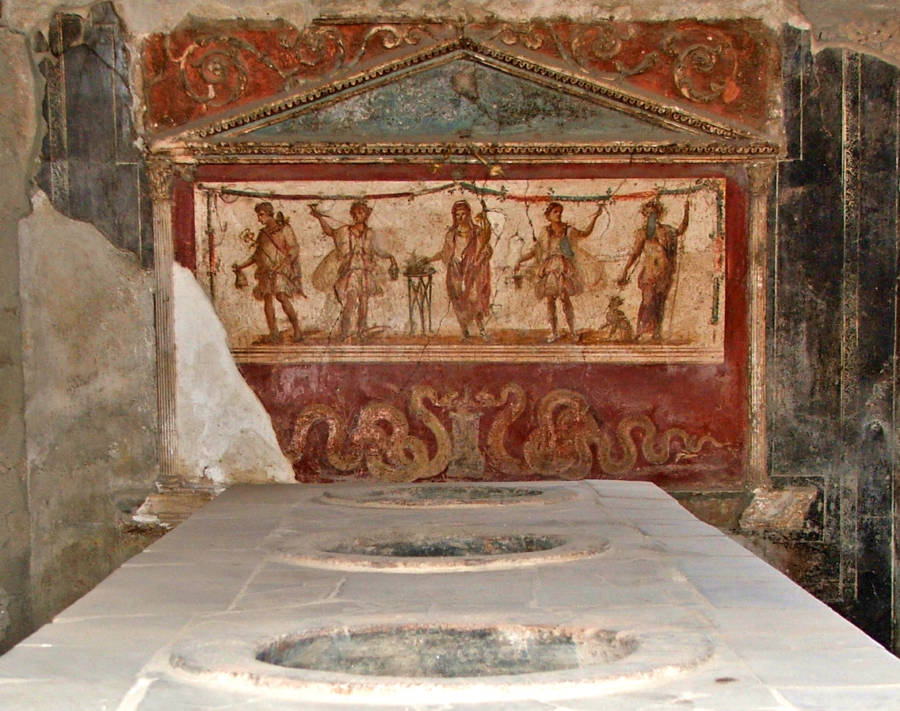A thermopolium was a fast-food stand meant for the lower class Pompeians who didn't have cooking tools or amenities of their own to eat, drink, and socialize.

Wikimedia CommonsA thermopolium with jars used to hold dried meats.
It might seem as though our modern-day appreciation of food trucks and portable snacks is entirely contemporary. As it turns out though, even residents of Pompeii were grabbing meals on the go.
According to The Guardian, archaeologists have just discovered around 150 thermopolia, or snack bars, littered throughout the ancient Roman city of Pompeii. It’s theorized that these were largely frequented by poorer Pompeians who lacked cooking tools and amenities of their own and relied, instead, on these convenient hubs.
Found in Regio V — a 54-acre site north of the Pompeii archaeological park — the 2,000-year-old relics were once thriving businesses that sold bread with salty fish, lentils, baked cheese, and spicy wine.
“A thermopolium has been brought back to light, with its beautiful frescoed counter,” wrote superintendent of the site, Massimo Ossana. The first images were publicly shared in February. Since then, a lot of intriguing analyses have been added to the initial discovery.
Regio V itself has yet to open to the public, however. This latest dig has been the most extensive in the site since the 1960s. In February, archaeologists found a well-deserved fresco of Narcissus gazing at his own water-based reflection.
While the remains of two women and three children huddled together, as well as a harnessed horse and its saddle were also discovered in recent months, these thermopolia stand out as considerable finds for archaeologists and historians to reassess facets of daily social life in ancient Pompeii.

A thermopolium on the Via Stabiana near the ruins of Pompeii.
Some of the thermopolium counters have built-in dolias, or jars, in which to store foods such as dried meats. A thermopolia essentially became a de facto hub of Roman street life and social gatherings. Pompeiians clearly appreciated brevity, as thermopolia literally means “a place where (something) hot is sold.”
Counters that were decorated with frescoes typically belonged to the more popular thermopolia and owners who had more money to spend on inviting aesthetics and welcoming design.
Nonetheless, the Roman upper class largely avoided these places. Socializing or eating at thermopolia was considered a lower class affair. Residents who did frequent them, however, seemed to have enjoyed them just as we today appreciate gathering at bars or pubs. It’s believed that even business deals were regularly struck at these fast-food sites.
In the end, the aftermath of Vesuvius’ eruption in 79 AD continues to reveal itself through archaeological digs such as this. More than 2,000 people died from the volcanic explosion with much of ancient Pompeii either being destroyed forever or getting trapped in time waiting for us to uncover it.
These ancient ruins were first discovered in the 16th century and initial excavations began in 1748. Pompeii remains one of the most popular archaeological dig sites on the planet — which explains how new discoveries like this continue to arise, but doesn’t make them any less impressive.
Next, see some of the chilling bodies of Pompeii and learn some of the most fascinating facts about ancient history.





